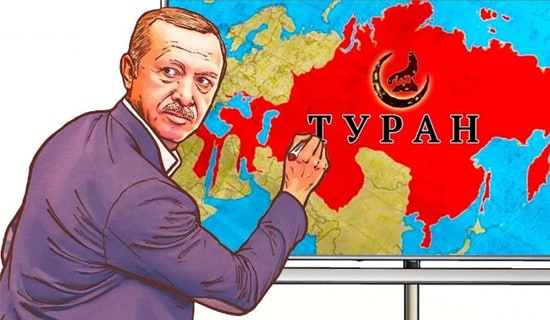On May 24, 2019, the Roznama Urdu Times, a leading Urdu-language daily published from Mumbai, ran an article titled "The Enemies Of God And Friendship With Them." The article, published a day after the 17th of Ramadan, which marks the day of the Battle of Badr, the first major battle involving a Muslim army, was written by Maulana Muhammad Abdul Hafeez Islami, an Islamic scholar.

The article begins with a Koran verse: "Oh you who have believed, do not make Jews and Christians your friends. They are friends between themselves. And if someone from among you makes them his friend, then he is counted among them. For sure, Allah deprives the oppressors of His guidance." The source for the quote is given as Chapter Al-Ma'idah Verse 51 of the Koran. The English translation of this verse and that of the verses cited below have been prepared from the Urdu given in the Roznama Urdu Times article.
There are many religious texts that promote negative views about one community or another. However, most communities tend to ignore such literature and junk it as irrelevant for modern times. The question is: Why is the editor of a leading Indian daily propagating such hateful content about Jews and Christians, or about any community, for that matter?
The author of the article writes: "There is need for extreme caution in extending friendship to Jews and Christians and [other] infidels. Without it, there is always a threat to the life of the believers and Islamic collectivism. Because the worshippers of falsehood want to take advantage of every opportunity that can damage the believers and Islam. Therefore, Allah, on many occasions, according to the need, and especially addressing the believers, asked them to be wary of Jews, Christians, polytheists, etc., not to share secrets with them, nor befriend them."
Maulana Muhammad Abdul Hafeez Islami, the author, argues that there are eight instances in the Koran that clarify this subject, as does the mentioned verse. He cites Chapter Ale-'Imran Verse 100 as: "Oh you who have believed, if you follow a faction from among the Peoples of the Book, then they will take you back from belief toward unbelief." Then he quotes Verse 118 of the same chapter: "Do not share secrets except with people of your own group." The author cites Verse 149 of the same chapter as: "If you act at the behest of those who have accepted the path of unbelief, then they will take you back [on the path of unbelief]."
To stress his point that Muslims should not befriend non-Muslims, Maulana Muhammad Abdul Hafeez Islami quotes Chapter Al-Nisa Verse 144: "Oh believers, except the faithful, do not make infidels your friend." He also cites Chapter Al-Ma'idah Verse 57: "Oh you who have believed, before you, those among the people of the book who made your religion a matter of ridicule and entertainment, do not make them and other infidels your friends and associates."
According to the author, Allah orders Muslims in Chapter Al-Taubah Verse 23: "Oh you who have believed, do not make your fathers and brothers your associates if they prefer unbelief over faith." The author cites Chapter Al-Mumtahanah Verse 1: "Oh you who have believed, if you have come out, leaving homes and homeland, to seek my approval, in my path to wage jihad, then do not make friends with the enemies of mine and of yours." He also cites Verse 13 of the same chapter: "Oh you who have believed, do not make friends with those who are under the wrath of Allah."
These verses were revealed in a certain context. In the early day of Islam, many Muslims, including those who had not declared their faith in Islam publicly, were friends with Jews and Christians. Invariably, for any social situation, the questions of loyalty and disloyalty came up and were settled through the revelation of these verses. This point is recognized by the author. But, regarding the validity of these verses for modern times, he quotes late Islamic scholar Maulana Shabbir Ahmad Usmani (1887-1949) as saying: "The attitude of good behavior and moderation can be with those infidels who do not express enmity and hate against the community of Islam."
Maulana Muhammad Abdul Hafeez Islami concludes his article by arguing that the problems faced by Muslims in Muslim countries or between Muslim countries can be resolved by following this Koranic principle of not befriending non-Muslims. For resolving the current problems "to appeal to Jews and Christians, rejectionists of the truth, or nations removed from God, highlights the fact that Muslims are proving by their actions that we do not have the capacity to resolve our issues and problems between ourselves."
South Asia has witnessed different categories of radicalization. In the early 19th century, the radicalization of Muslims led to jihad by Syed Ahmed Barelvi (1786–1831) against Sikh rule in Punjab. In the early 1980s, the radicalization of Sikhs in India's Punjab province resulted in the assassination of Indian Prime Minister Indira Gandhi. In the pre- and post-9/11 years, the radicalization of Pakistani, Afghan, and Kashmiri Muslims led to jihad against the Soviet Union and America in Afghanistan and against India in Jammu & Kashmir.
These processes have also caused a reactionary radicalization among young Hindus, leading to mob lynchings in which young Muslims are being killed more frequently now in India than they had been in the past. In Indian society, Muslim and Hindu radicalizations currently feed each other. The editor of the Mumbai-based daily Roznama Urdu Times who decided to publish such an article promoting enmity against Jews and Christians and advocating a policy of no-friendship with non-Muslims is part of the larger religious problem threatening India and its surrounding countries. India has laws against the promotion of religious hatred, and the editor of Roznama Urdu Times must be prosecuted.
*Tufail Ahmad is Senior Fellow for the MEMRI Islamism and Counter-Radicalization Initiative





